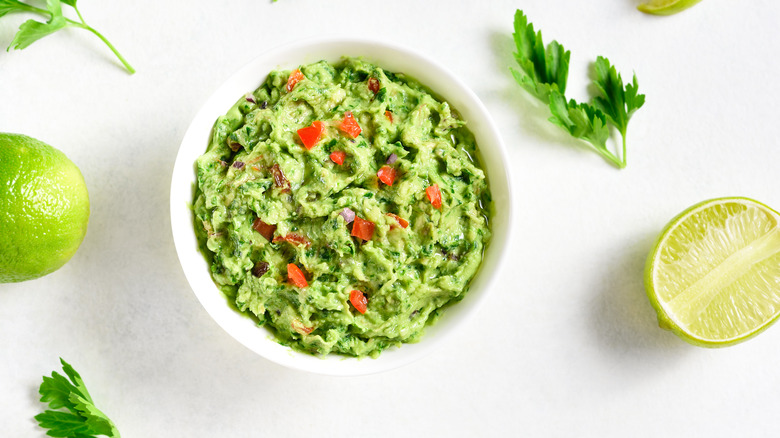New Study May Convince You To Eat A Lot More Avocado
Correction 3/31/22: A previous version of this article stated the AHA study was published today (March 31), it was published March 30.
There is no denying avocados have been having a moment for the last 20 years. Americans' love of the dense, creamy fruit started to kick off around 2000. According to the Washington Post, that's when avocados became more widely available at grocery stores beyond the west coast. Ever since, the rise of the fruit across the country has been unstoppable.
People are eating more avocados than ever, whether they're enjoying them in guacamole, on avocado toast, or even in a matcha avocado cheesecake. In the U.S., annual avocado consumption was about 436.6 million pounds in 1985; it soared to 3,022 million pounds by 2021 (Statista). If you are an avocado lover, you're probably aware of the fruit's creamy, dreamy texture and buttery flavor and its health benefits. They range from potassium, which helps keep your heartbeat steady, to high levels of antioxidants that can help prevent macular degeneration (via WebMD).
Eating avocado may help protect your heart
In a study just published by the American Heart Association (AHA), data shows that study participants who ate more than two half-cup servings per week of avocado had lower levels of cardiovascular disease (CVD) and coronary heart disease. The study included 68,786 women and 41,701 men, whose diet was assessed every four years spanning from 1986 to 2016. The findings showed that study participants who ate at least two servings of avocado each week had a 16% lower risk of CVD and a 21% lower risk of coronary heart disease compared to those who never or rarely ate avocados.
That's good news for avocado lovers everywhere, said Cheryl Anderson, chair of the AHA's Council on Epidemiology and Prevention. "This study is evidence that avocados have possible health benefits," she told ScienceDaily. "This is promising because it is a food item that is popular, accessible, desirable, and easy to include in meals eaten by many Americans at home and in restaurants."
Additional data in the study demonstrated that replacing fatty foods such as butter, cheese, and processed meats with the same amount of avocado was associated with a 16 to 22% lower risk of cardiovascular disease events. It's something to think about the next time you top your toast.

